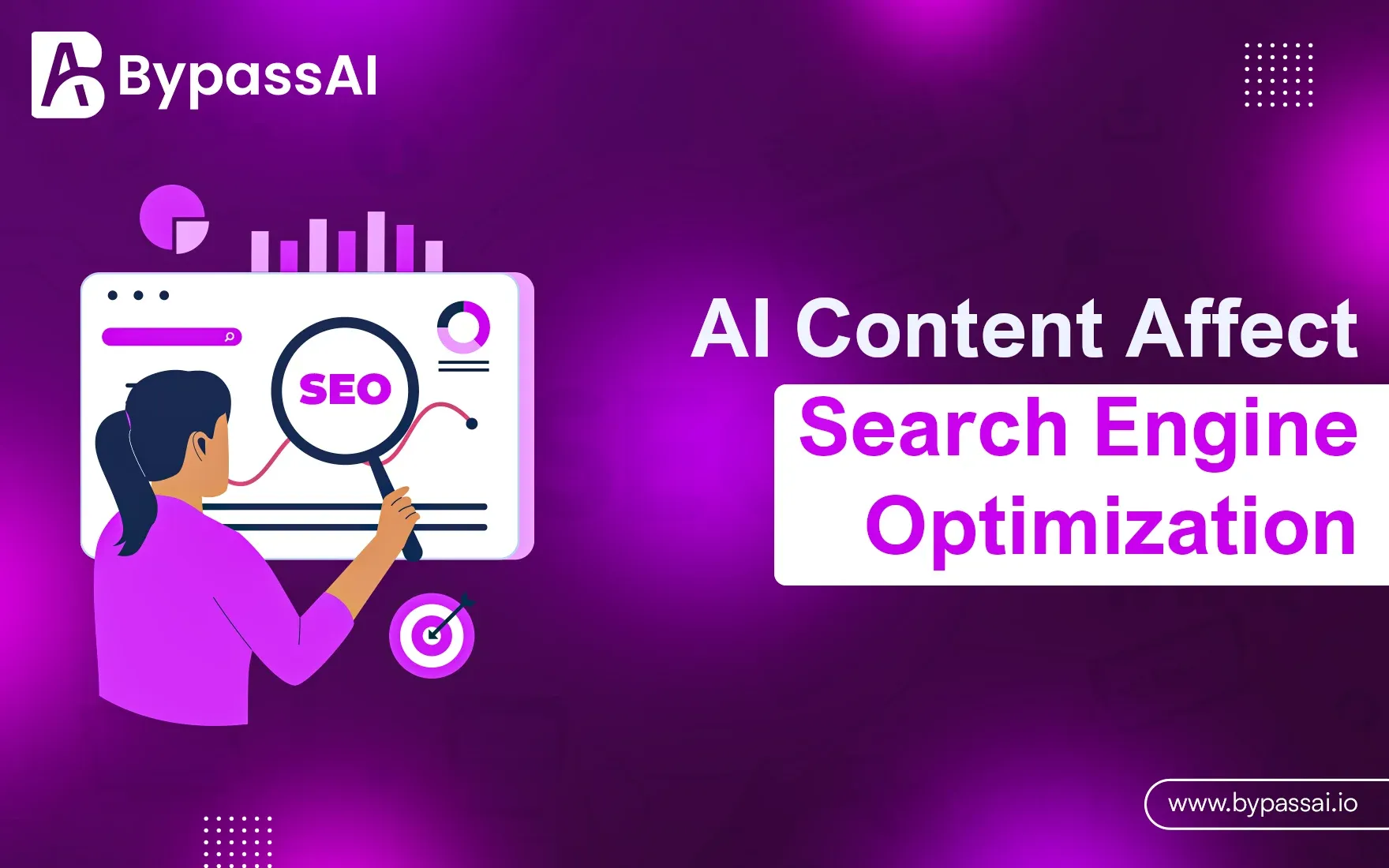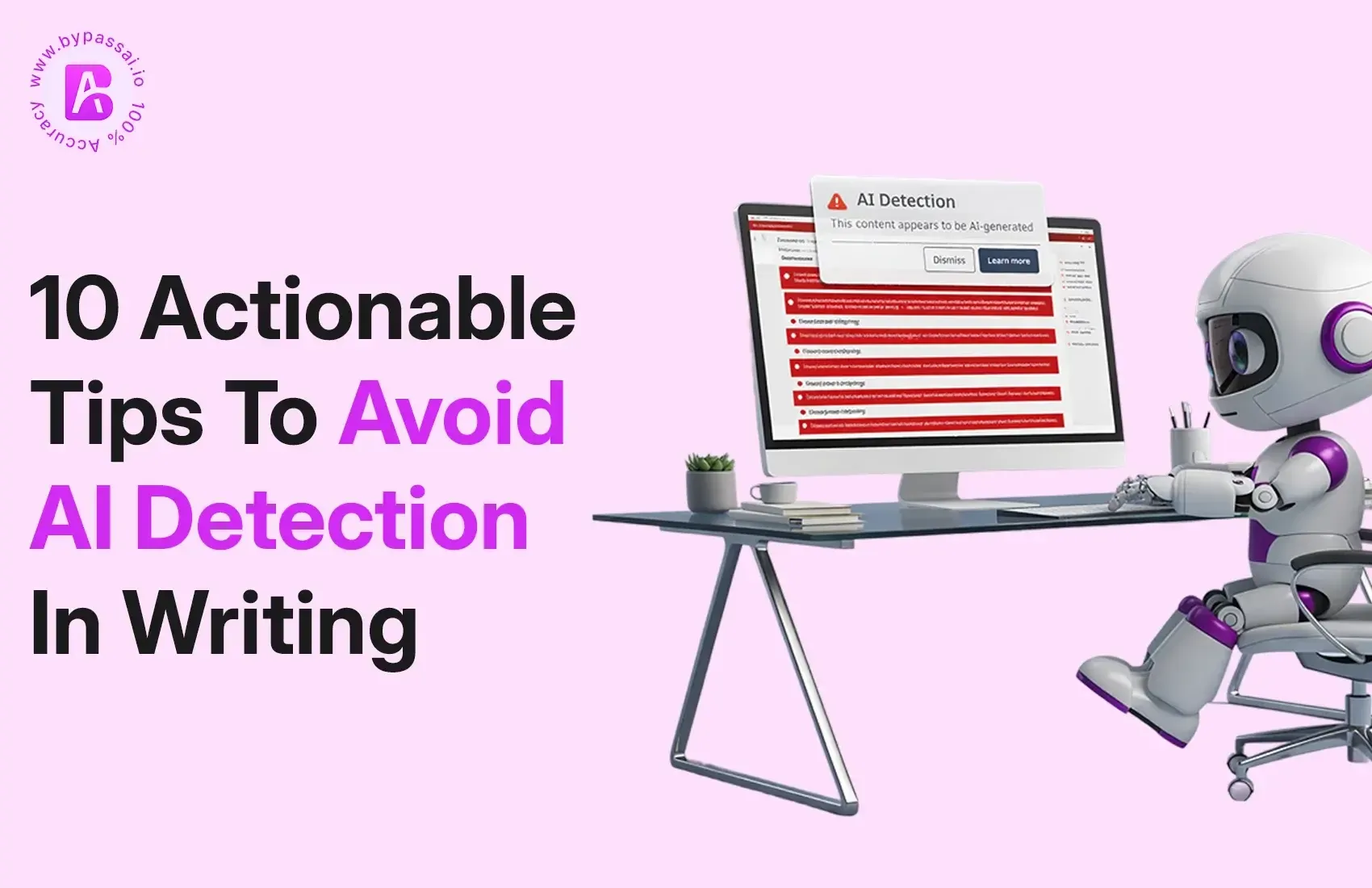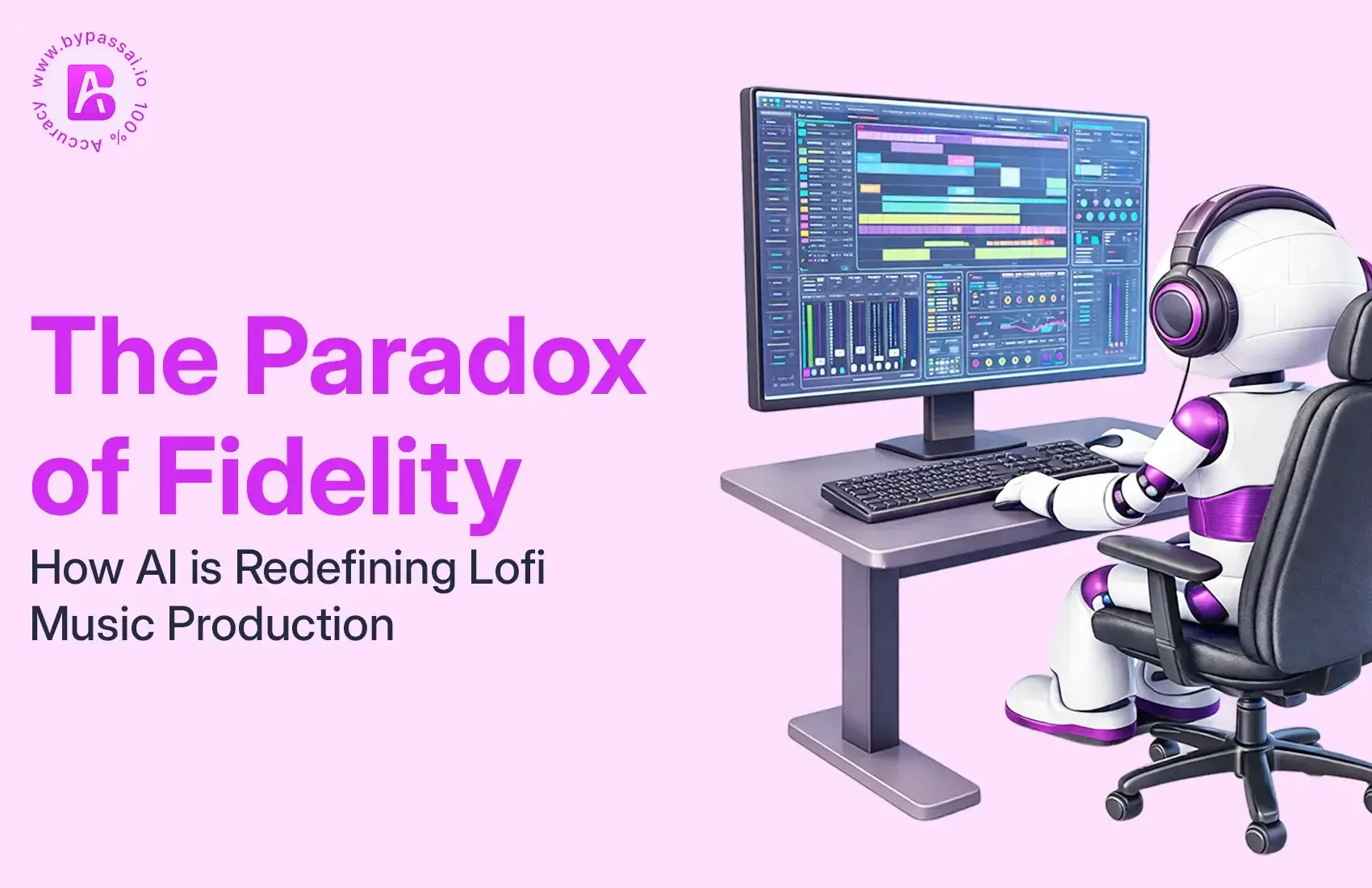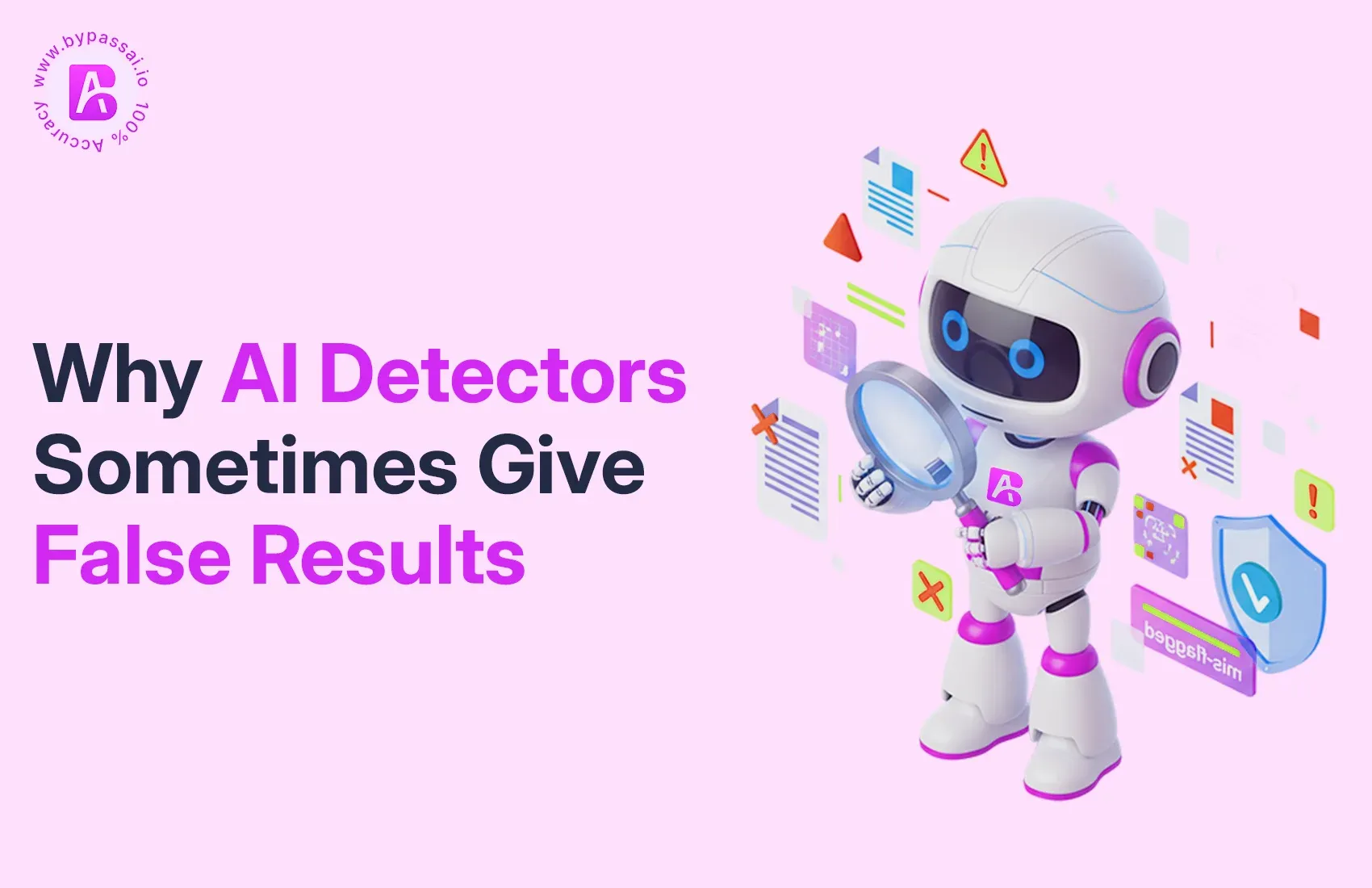Sign In
Welcome to Bypass AI! Sign in to continue your exploration of our platform with all its exciting features.
Forgot Password?
Don’t have an account ? Sign up
Sign Up
Embrace the Future with Bypass AI! Sign up now and let's rewrite the possibilities together.
You have an account ? Sign In
Enter OTP
We’ll send you an OTP on your registered email address
Back to Login
Forgot Password
We'll Send You An Email To Reset Your Password.
Back to Login
Enter OTP
We'll send you an email to reset your password.
Back to Login
Confirm Password
Please enter your new password.
TABLE OF CONTENTS
Quick Summary
What is the Role of AI in SEO?
How Does Google Feel About AI Content?
Does AI Content Rank?
How Artificial Intelligence Affects Keyword Research and Optimization
A Guide to Optimizing AI Content for Search Engines
Does AI Content Improve SEO?
How Does AI Affect SEO?
Human-Created Content vs. AI-Created Content: What's the Difference?
The Future of AI in SEO and Content Marketing
Benefits of SEO with AI-Generated Content
Which is the Best Content for SEO?
Conclusion
FAQ's
The new digital paradigm is transformed by artificial intelligence (AI) and this transformation has brought a lot to Search Engine Optimization (SEO). The use of AI-generated content for SEO has raised several issues regarding its effectiveness and negative impacts. Is AI content good for SEO, or does Google penalize AI content? This blog tries to answer these questions and investigates how AI and SEO can work together for best results.
Quick Summary
SEO boosts keyword research, content creation, and optimization with the help of AI. High-quality content can be generated faster using AI, but it should be compliant with Google's policy not to receive any penalties.
What is the Role of AI in SEO?
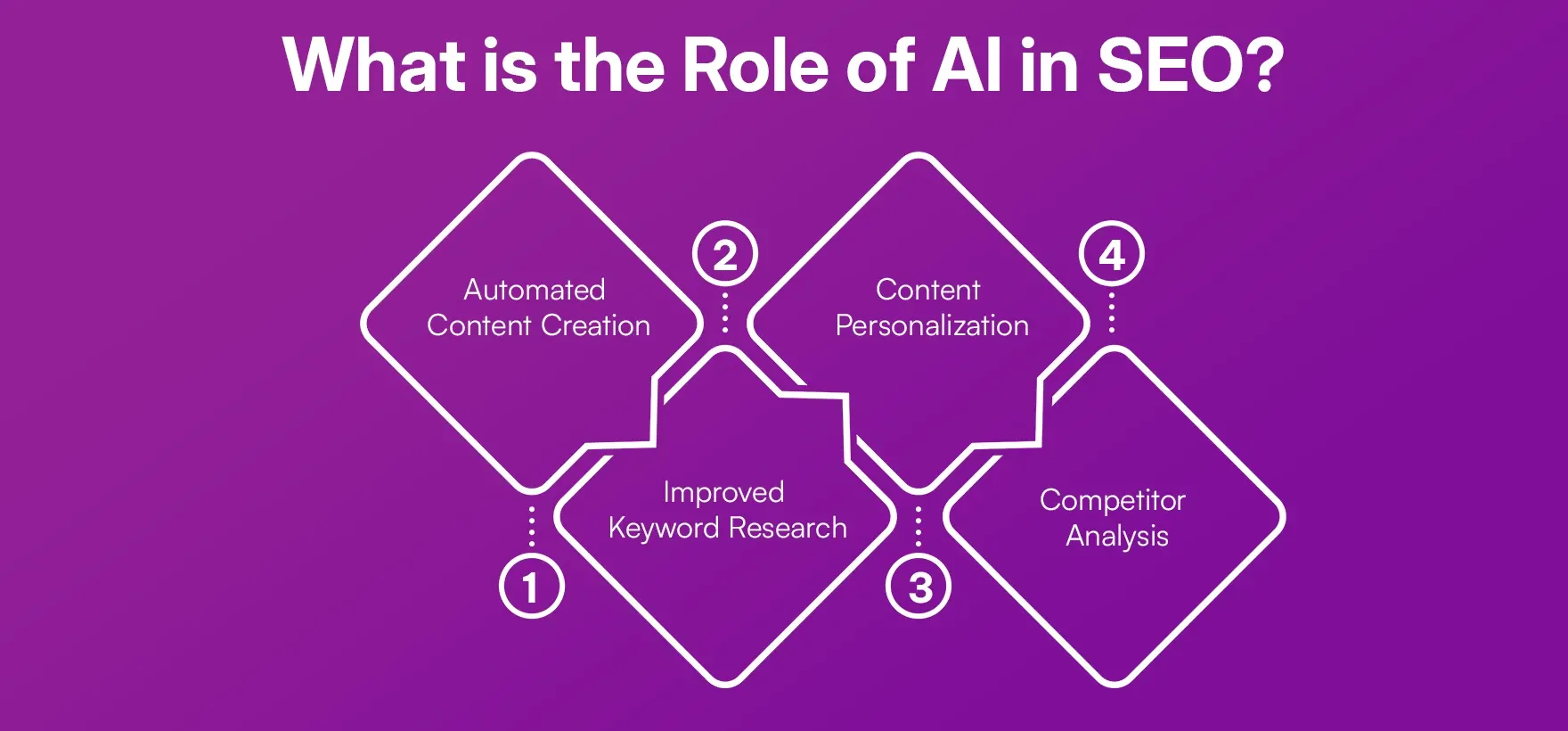
Automated Content Creation
AI tools rapidly churn out content based on specific keywords like "seo and ai content" and "ai content for seo".
Improved Keyword Research
AI aids in identifying and targeting high-value keywords like "does google penalize ai content" and "is ai content good for seo."
Content Personalization
AI personalizes the content to the users' preferences to enhance engagement and rankings further.
Competitor Analysis
AI tools analyze the content strategies of the opponents and manage to enhance the techniques in SEO.
How Does Google Feel About AI Content?
For Google, AI content is measured based on its quality and relevance to the user. Though the search engine doesn't have any punishment sentence for AI-written contents, it has reinforced that such content must comply with its E-E-A-T (Experience, Expertise, Authoritativeness, Trustworthiness) guidelines. In short, dirty-laden or non-genuine AI content is subjected to penalties.
Does AI Content Rank?
Artificial intelligence produced articles are deemed beneficial, practical, and are intended for target audiences in their current form. For instance, only well-structured articles with keywords such as, "does google eliminate ai content" and "is ai content diabolical for SEO." However, all such efforts should be fruitless if the article fails to be worth reading, accurate, and related to the search criteria. Proper formatting, keyword-filled placement, and obtrusive but natural readability are also important. Last but not least, keeping things up-to-date and original can help AI-generated content fare well on search engines.
How Artificial Intelligence Affects Keyword Research and Optimization
Artificial intelligence has changed keyword research significantly.
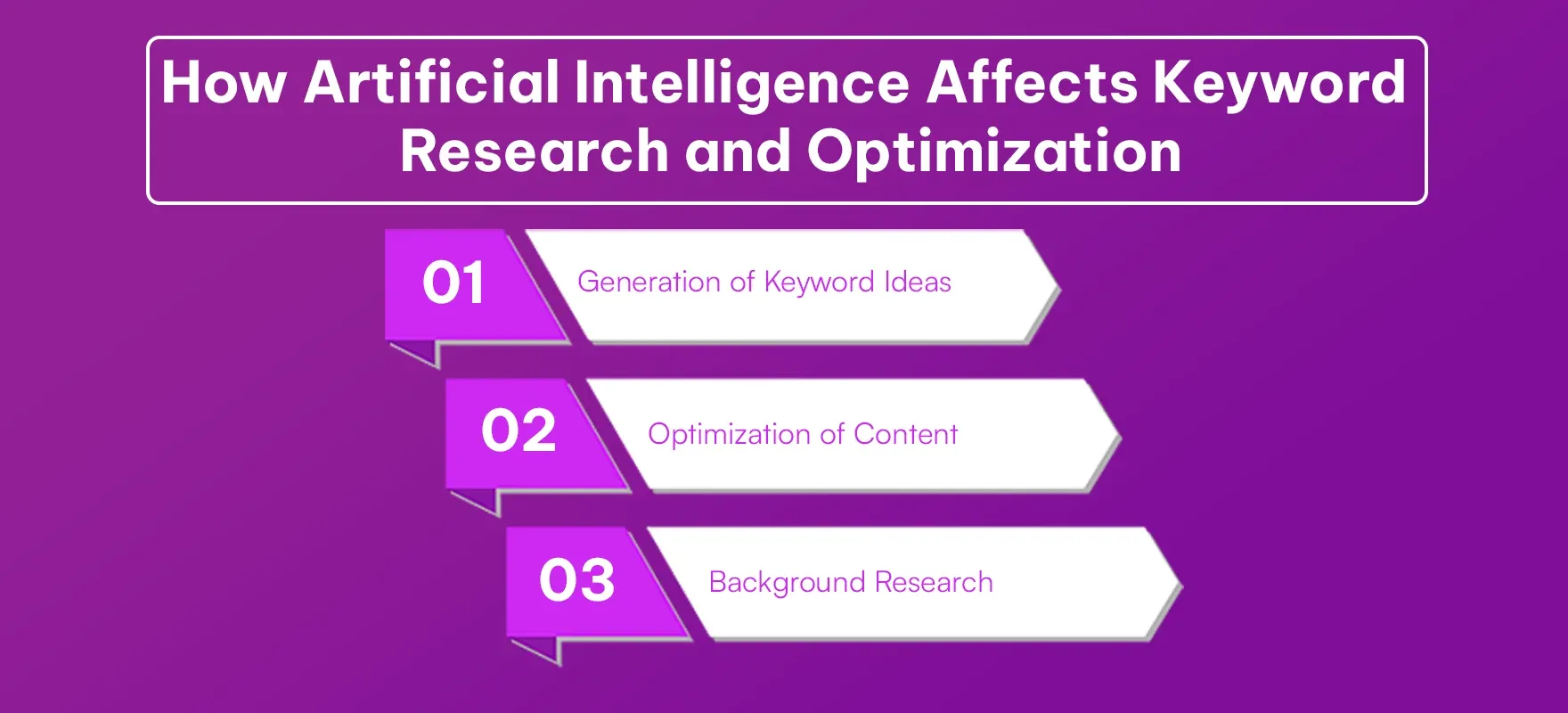
1. Generation of Keyword Ideas: With AI tools like SEMrush and Ahrefs, high-performing keywords are suggested, “For example, seo and ai content, ai content for seo, etc.”
2. Optimization of Content: AI tools help check keyword density; then place and relate it to improve ranking.
3. Background Research: AI makes data gathering easy and quite fast helping create authoritative and insightful content.
Read more, How Plagiarism Affects Your SEO & How To Avoid It
A Guide to Optimizing AI Content for Search Engines
A Guide to Optimizing AI Content for Search Engines
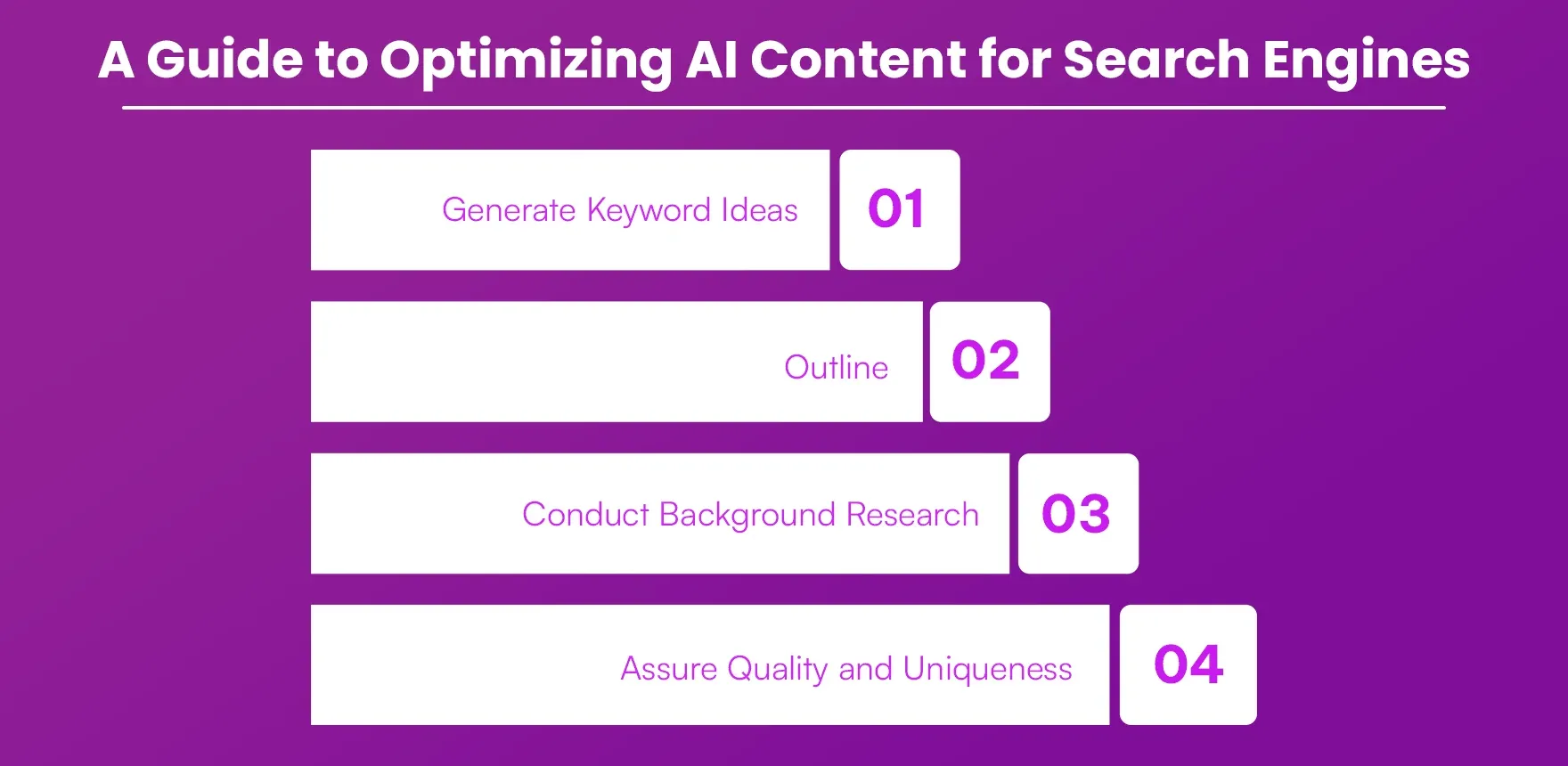
1. Generate Keyword Ideas: Identify primary and secondary keywords from AI tools.
2. Outline: Use AI for structuring content under topics such as "is ai content good for seo" above and "does google penalize ai content" below.
3. Conduct Background Research: AI tools will make the whole business of collating statistics and insights easier.
4. Assure Quality and Uniqueness: Value-generating content needs to be produced according to user intent.
Does AI Content Improve SEO?
Yes, AI content can run SEO with its efficiency, accuracy, and scalability. But all this must happen without overlooking the humans because, in the end, it is human relevance and value measuring the content. The AI processes the keyword recommendation, structural framework, and idea for topics, making the creation of SEO-ready content very easy and efficient. Without adequate supervision and modification, however, AI content will fail to have that real feeling of understanding or, in fact, might present a complete misrepresentation of a tone understood by the target audience.
The combination of AI and human experience produces content that is thus high quality and SEO optimized and will make sense to both the user and the search engine.
How Does AI Affect SEO?
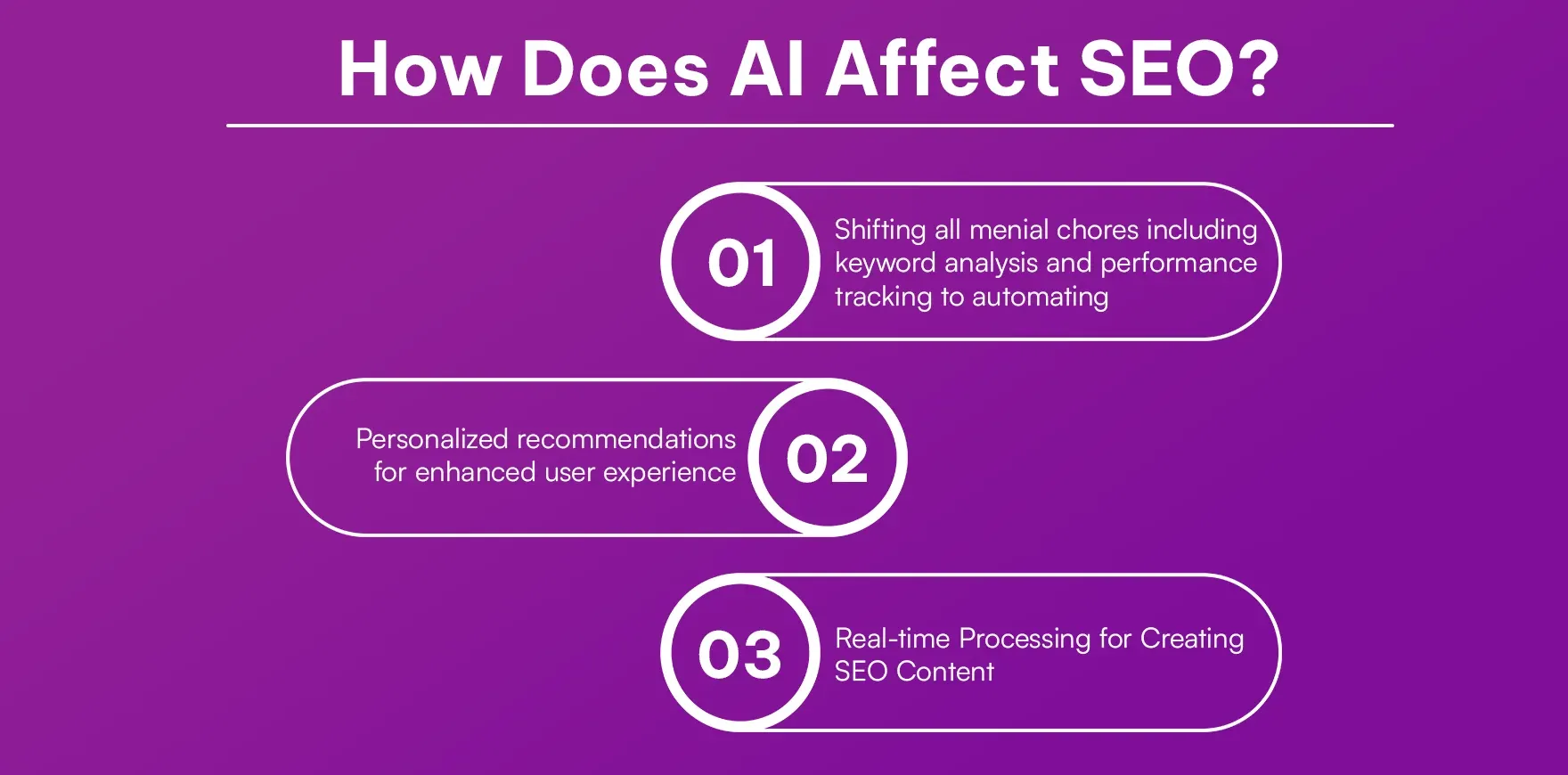
Quantifying AI on SEO:
Shifting all menial chores including keyword analysis and performance tracking to automating
AI tools can analyze a huge dataset in a matter of seconds, identify trending keywords, as well as perform performance metrics such as page ranking, bounce rates, and even user engagement. Time-consuming, which keeps SEO professionals focusing on strategy and content improvement. AI tools can also give actionable insights that help perfect the SEO actions.
Personalized recommendations for enhanced user experience
By providing personalized content recommendations, AI analyzes user behavior and preferences in order for websites to give that unique value to its users. Hence, the rate of engagement is poised to increase significantly on the portal and increase retention levels, as the user will more likely visit sites that suggest content meeting their likes. Personalization is also good because the likelihood of converting a visitor into a customer is improved; it is one of the factors for search engine optimization.
Real-time Processing for Creating SEO Content
There are various ways in which associated artificial intelligence is used by SEO professionals. AI streamlines that process from understanding how high-ranking articles are written to keeping track of keywords then concerning the structure and formatting since all content should not only available but also easy. Writing has already gone a step forward by bringing together concept ideas for easier and continued quality production. Consequently, less time is allotted toward the content while improving scalability for the SEO campaign.
Human-Created Content vs. AI-Created Content: What's the Difference?
Human-generated content has more creativity and a sense of emotional appeal while AI is efficient and data-driven. The best SEO practices can capitalize on both. The unique voice, cultural nuances, and level of audience understanding from human creators set their content apart by making it relatable and full of emotion. Artificial intelligence, on the other hand, excels by processing much more data in a short time and optimizing them based on keywords that maintain consistency across volumes of content. Where human insight meets efficiencies of AI, high-quality content is generated that speaks to the readers while performing search ranking.
The Future of AI in SEO and Content Marketing
AI's current position in SEO and content marketing is just the beginning. Developments in natural language processing (NLP) and artificial intelligence promise increasingly avant garde yet increasingly sophisticated content production tools.
Benefits of SEO with AI-Generated Content
Quickly create and enhance content.
Capacity: Conduct bulk SEO campaigns with ease.
Data-Based Insights: Use analytics for better conclusions.
Which is the Best Content for SEO?
It is a matter of balance in the argument about which one is best for one's content, AI or human-generated. Indeed, the best SEO formula really incorporates both human ingenuity and AI effectiveness. There are, of course, many areas where AI excels as far as trend and keyword optimization and generation of insights based on data. The trust, emotional, and imaginative elements require human touch-the contribution of content, therefore, ensuring higher engagement, better ranking, and continued audience retention.
Conclusion
AI has redefined SEO, but given that efficiency and scalability is the same for all, the integral part is quality and compliance with Google policies. And if you want to know whether content was generated by AI or not, tools such as the BypassAI's AI detector will come in useful.
FAQ's
1. Will Google impose penalties on you?
Google considers mostly the quality and relevance of a piece of content as seen in the original source.
2. Is AI Material Beneficial for SEO?
Most probably, for the greater part, it is only necessary to modify keywords or optimize to the users' intent.
3. Does AI Content Damage SEO?
AI Content content poorly written or not relevant does affect SEO negatively.
4. What is the best tool for creating AI content?
Some of the best tools for creating AI content include Jasper, ChatGPT, and, of course, SurferSEO.

